This is a compelling story, one that deserves being far better known than it is.... This book is very well written. It is clear, well organized, and rises here and there to a quiet grandeur.... It is much more than a labor of love, for his love is backed by solid industry and intellectual craft.
DAVID HAMILTON, AUTHOR OF Deep River: A Memoir of a Missouri Farm
Looking After Minidoka is an innovative and engaging excursion into buried historyglobal and personal. A compelling family narrative, peppered with fragments of memory, history, and poetry, this heartfelt memoir underscores the power of the American Dream, as well as how easily fear and intolerance can corrupt it.
DEAN BAKOPOULOS, AUTHOR OF My American Unhappiness
By his skillful blending of history and memoir, Nakadate lifts the veil on a story too often shrouded in shadow, revealing beneath a portrait of a Japanese American family in search of the differences between home and homeland.
B. J. HOLLARS, AUTHOR OF Sightings: Stories
Neil Nakadates clear-eyed, carefully researched but nonetheless passionate book is rich with the closely observed details of internment camp life. Looking After Minidoka, written with wisdom, understanding, and a writers eye for the stories worth telling, is not only an important contribution to the literature of internment but also an important story about the promise and peril of America.
LAUREN KESSLER, AUTHOR OF Stubborn Twig: Three Generations in the Life of a Japanese American Family
Neil Nakadates Looking after Minidoka: An American Memoir is a beautifully crafted, powerfully moving American narrative.... Nakadates memoir gives poignant life to chapters of American history that are still being written today by all who dream to be, as Nakadates mothers transcribed name of Meriko says it, a child of America.
RAMN SALDVAR, EDITOR OF The Imaginary and Its Worlds: American Studies after the Transnational Turn
The story of our country is the story of a family is the story of a man, Neil Nakadate, whose richly researched and deeply felt memoir will move your head and your heart.
BENJAMIN PERCY, AUTHOR OF Red Moon

ALSO FROM THE AUTHOR
Understanding Jane Smiley
A Rhetoric of Doing: Essays on Written Discourse in Honor of
James L. Kinneavy (edited with Stephen Witte and Roger Cherry)
Writing in the Liberal Arts Tradition: A Rhetoric With Readings
(with James L. Kinneavy and William J. McCleary)
Robert Penn Warren: Critical Perspectives (editor)
Looking After
MINIDOKA

NEIL NAKADATE

This book is a publication of
Indiana University Press
Office of Scholarly Publishing
Herman B Wells Library 350
1320 East 10th Street
Bloomington, Indiana 47405 USA
iupress.indiana.edu
Telephone orders 800-842-6796
Fax orders 812-855-7931
2013 by Neil Nakadate
All rights reserved
No part of this book may be reproduced or utilized in any form or by any means, electronic or mechanical, including photocopying and recording, or by any information storage and retrieval system, without permission in writing from the publisher. The Association of American University Presses Resolution on Permissions constitutes the only exception to this prohibition.
 The paper used in this publication meets the minimum requirements of the American National Standard for Information SciencesPermanence of Paper for Printed Library Materials, ANSI Z39.48-1992.
The paper used in this publication meets the minimum requirements of the American National Standard for Information SciencesPermanence of Paper for Printed Library Materials, ANSI Z39.48-1992.
Manufactured in the United States of America
Cataloging information is available
from the Library of Congress.
ISBN 978-0-253-01102-2 (paper)
ISBN 978-0-253-01111-4 (ebook)
1 2 3 4 5 18 17 16 15 14 13
For my parents
Katsumi (James) Nakadate
19142007 | (Meriko) Mary Marumoto Nakadate
19152000 |
and for theirs
Bunichi Nakadate
18771965 | Moriji (Ashizawa) Nakadate
18921939 |
Minejiro Marumoto
18801963 | Hatsune (Imoto) Marumoto
18901966 |
Could a greater miracle take place than for us to
look through each others eyes for an instant?
HENRY DAVID THOREAU, Walden (1854)
CONTENTS
1
Issei
2
Nisei
3
Minidoka, 19421945
4
Sansei
5
Unfinished
PREFACE MY NICKEL
SUMMER, 1987
Hello.
Hello? Is this Neil, uh... Naka... ?
Yesthis is Neil....
Well, hi. My name is A______, and I live just over here in Boone, and I saw your letter in the paper and wanted to talk with you about it.
He was calling from ten miles away, so there was something neighborly in it, but also reason to give me pause. Long distance. The Des Moines Register had recently published a letter to the editor I had written, urging support of legislation working its way slowly through the U.S. Congress. Invoking the First Amendment of the Constitution, Japanese Americans were petitioning for redressrecognition and compensation from the government for the violation of their rights due to their mass removal and incarceration during World War II.
During the preceding week I had already received several unsigned pieces of mail, apparently (if not explicitly) in response to my letter, containing both hand-written and printed material to the effect that if I rethought my approach to prayer or politics, or both, I might be a better and happier person. I had just put away the supper dishes when the phone rang.
Well, I just dont agree with your letter, my caller told me. Im against apologizing to the Japanese, and Im against paying them anything. After all, there was a war going on, and the Japs were our enemy. Why should we apologize?
I winced at his use of Jap, aware that this could become a testy conversation. Well, I said, its important to remember that these werent Japanese, but Japanese Americans. A third of them were legal immigrants, including my grandparents, and two thirds were their children, born in the U.S., American citizens, like my mother and father. The people the government locked up in camps werent the enemy, they were 110,000 people whose ancestry happened to be Japanese.
But they bombed Pearl Harbor!
Well, not reallyI think we both know that. The war was started by the Japanese militarybut the Japanese in America had nothing to do with Pearl Harbor. They were as angry about it as you were. Believe me, they wished it hadnt happened.
I resisted mentioning how embarrassing it had been in 1941 that the government had ignored diplomatic warning signs and intelligence alerts in the weeks and even hours before the attack on Hawaii. I resisted mentioning how tempting it always is in a situation like that to divert questions and designate an other who can get the scrutiny and take the blame.
But it did happen, and they did it. And out there on the West Coast, in a military zone... they could have done even more harm.
Next page

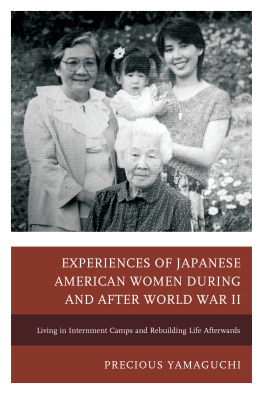
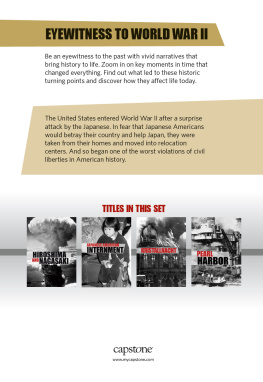
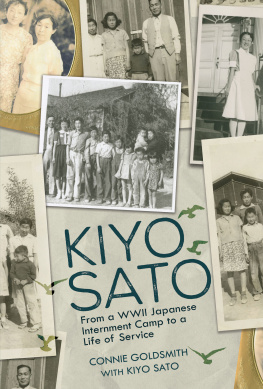
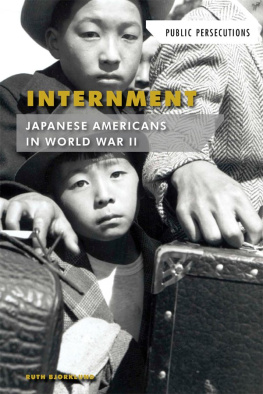
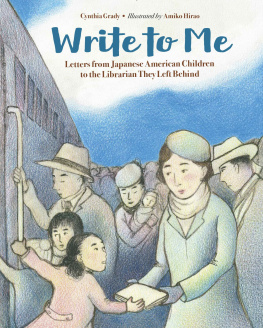
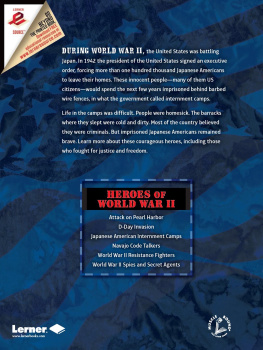
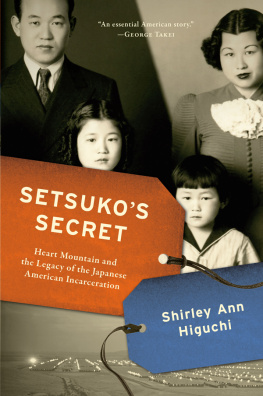
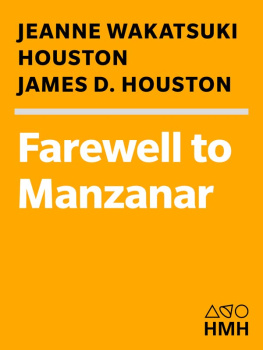
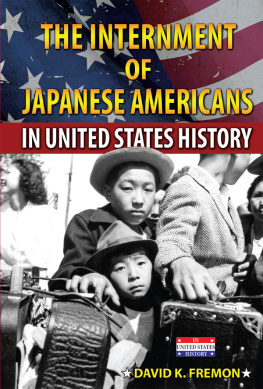



 The paper used in this publication meets the minimum requirements of the American National Standard for Information SciencesPermanence of Paper for Printed Library Materials, ANSI Z39.48-1992.
The paper used in this publication meets the minimum requirements of the American National Standard for Information SciencesPermanence of Paper for Printed Library Materials, ANSI Z39.48-1992.